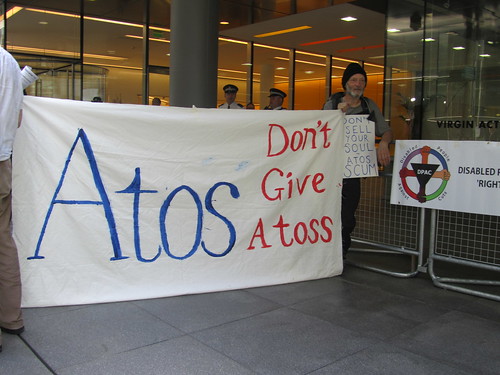The day you get that diagnosis is the day the blood runs cold in your veins. Everything stops. Sound is muffled in your ears, shock runs through you and you know in that moment that nothing will ever be the same again.
Life, that always seemed so ordered and full of potential becomes precious. A gift greater than any you ever appreciated. A privilege, not a right. Your own mortality comes crashing in around you, redefining love and hope and dreams for the future. Everything will change forever in that one horrifying moment.
If the unthinkable happens to one you love, the sense of impotence and fear is worse. You want it to be you. You'd give anything to change things around, to take away all the pain and suffering. You want to take on every invasive test, every painful procedure. You want it to be you laying there, pail and weak, vomiting endless traces of chemo or morphine into a grey carboard tray.
You want to be there. All the time. Every minute of every day. You want to protect the person you love most in the world, to fight for them, to arrange the very best care available. Suddenly work and meetings and focus groups are forgotten - irrelevant even - when contrasted with the battle for life.
Money won't save them. It might make things easier, speed up care or assure access to the most innovative treatments, but the battle is yours and yours alone. Together.
You grieve. Grieve for the carefree days, the easy confidence that good health brings. You grieve for the future, so cruelly and randomly threatened. You grieve for the love and support that always came first. You grieve for your children and the spectre that now hangs above their heads every minute of every day. Youngsters become carers and you grieve for the easy innocence they will never know again.
The luckiest of all might be able to leave work that very moment, rush home and gather up family in strong, caring arms. The luckiest will only have to face a battle with the disease now tearing their family apart, with little thought for other practicalities.
Most are not that lucky.
Most will find that just as their world falls apart, they must still pay the mortgage, still feed the children, still keep working hard. They will suffer endless, unimagined agonies as they try to keep all the balls in the air, desperate to fight side by side with their soul mate but unable to do so.
They might lose a wage. Suddenly and without warning their income may half just as they need it most. They may have no choice but to watch in terror as their modest savings drain away, placing fear of poverty side by side with the fear of death.
Is there anything worse? Could there be anything worse than finding your life turned upside down in every area? Job under threat, home at risk, ambitions and dreams destroyed? As your children's faces become etched with fear, do you tell them Mummy will be OK? Do you keep your financial fears to yourself? Do you take on every burden until the pressure gets too much? Do you try to do the work of 10 men? Superman at work, loving support at the hospital bed, devoted father and capable housekeeper? Can you bear the pressure or do you crack yourself?
There is something worse.
Finding that there is no cure.
Finding that there are no magic chemo bullets to stamp out the darkness, no dazzling operations to cut out the contagion. Treatments are patchy - the doctors tell you if you're lucky they can "manage" your condition, but from this day, life will be about survival. Forever.
The treatments won't stop in a month or a year, but they will still make you vomit or send shooting pains through your skull or make you so sensitive to sunlight that you can no longer go outside. No longer take your children to the park or dig sandcastles in the hazy summer sun. They might make you weak, or angry or depressed. They might cause more symptoms than the disease itself, but they keep you alive and "alive" is all those who love you need. Do anything Mummy, but don't die.
The boss who's been so supportive can't support you forever. 6 months, maybe even a year, but in the end, even the most caring boss will have to draw the line. What do you do? Who will care for your family while you work? Is you child old enough to call an ambulance if she has to? Would she know where the special pills are kept in case Mummy won't wake up? Can you teach her your work number or do you fret and worry through every day, never knowing what you will return home to?
Things won't improve. A grey faced doctor might tell you gently that they will only ever get worse. Functions will fail, dignity will crumble, every previously automatic task will need thought and support. There will be wheelchairs or oxygen tanks or feeding tubes. You will have to learn to change incontinence-bags or give injections or rig up sterile feeds. You will have to find money for a hoist or a voice recognition system.
One day, Mummy might not be able to answer. She may not be able to walk or leave her bed. Birthday parties will have to move upstairs to a fetid room that smells of the end, but you will smile brittle smiles and put up bunting, pretending that nothing has changed. You will all laugh a little too shrilly, jump just a little too nervously, but you will pretend. When the kids are safely tucked up and your partner is finally sleeping a tortured morphine sleep, you will cry great heartwrenching sobs into a cushion so nobody hears.
There are legions of us Iain. Probably millions. We fight great battles every day. We find resilience and love we never knew existed. We find pride in the face of indignity, hope in the face of despair. Our relationships are tested every day and every day we have to whisper "but I love them". Every day, that love has to win. Every day, love is all we have left to get us through.
We pretend the poverty doesn't matter and when faced with life or death, it's funny, but it doesn't seem to matter so much. An afternoon in a park at the beginning of spring, watching the children climb steps to great slide-summits, their joyous eyes flashing in the watery sun is almost too much pleasure to bear. The poignancy of knowing it could always be the last time makes the simplest things precious.
We pretend our ambitions and dreams were not important. Strange, but when your ambition becomes surviving to see your children married, it's true, they don't matter so much.
We pretend we're strong, but we only have the strength we all have, buried deep inside us. We just have to dig deep down to find it. Every day. Forever.
****************
This is why you cannot decide, randomly, that after a year, our families must struggle on alone. A year?? Why a year? Why not 6 months or 3 years or a day? It bears no relationship to the real world, it is policy designed by Dali.
This is why you cannot make us wait 6 months for Disability Living Allowance. Why 6 months? By then we may be bankrupt, we may have lost our homes. We may be dead. The state may end up paying much more through picking up the pieces than in supporting us fairly from day one.
This is why more people must qualify for long term support. Because at the moment, you are failing people with lives like mine. People with Parkinson's and Arthritis and MS. Mothers and sons, daughters and fathers. People with lupus, schizophrenia, bowel disease, kidney failure, epilepsy, personality disorder, heart disease, COPD and thousands of less well known conditions that destroy lives. Countless things as devastating as cancer and some more so.
This is not "welfare." Welfare means to fare well. It is the mark of compassion and evolution in a democratic society. It means no-one should be left in absolute desperation. Your policies are causing this total desperation and I'm sure it is not what you want to do or set out to do.
By all means reform. Goodness knows the system does need to change, but the great myth is that it needs bigger sticks to beat us with and stricter reasons to ensure we do not qualify. Please Iain, listen to me today. You have all beat us hard enough for many years. There is nothing more to squeeze or remove or deny. We live in poverty and uncertainly already, and we have reached a tipping point. Labour's ESA was disastrous enough and already failing. Time limiting, tightening the descriptors yet again and leaving a lengthy qualifying period for DLA is going to cause real hardship and suffering.
Please listen. Please think again.
*************
Please do all you can to help me share this today. You can link to it, share it on Facebook, Twitter or Google+. If you have a Conservative MP, then PLEASE can I ask you to send him this today? You can do it in just a few moments here http://www.theyworkforyou.com/
Thank you.




